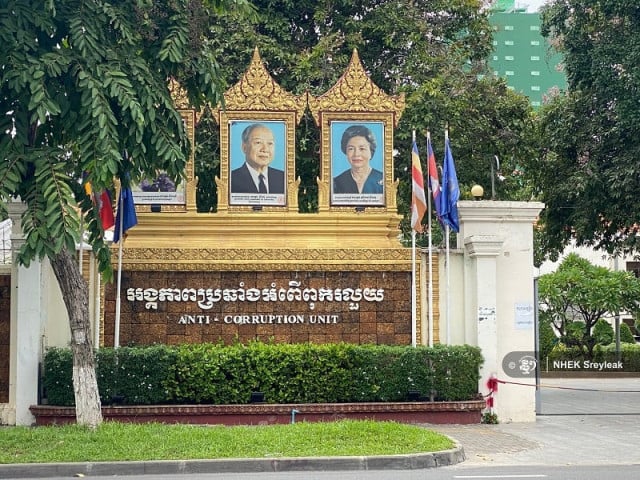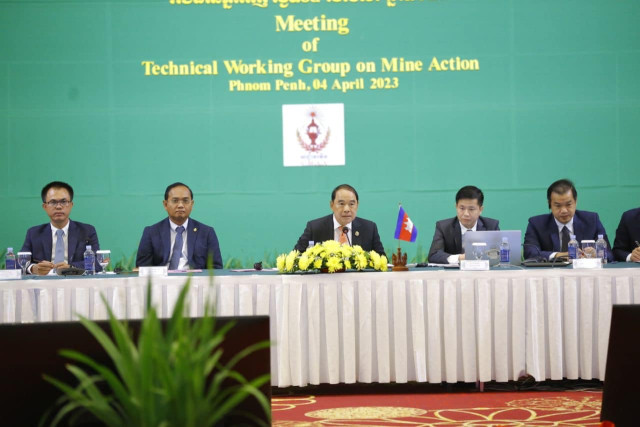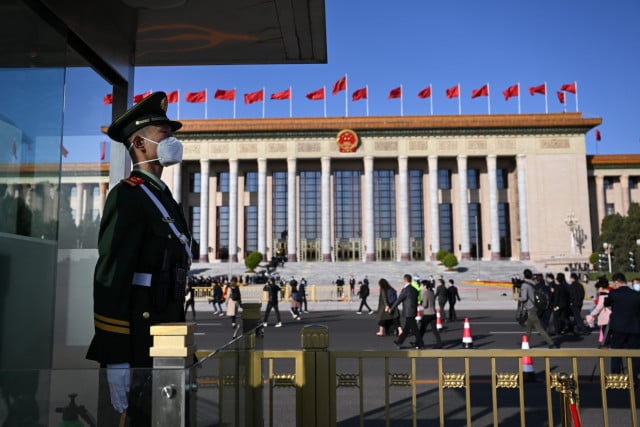Citizens Call for Greater Transparency on Officials’ Assets

- By Nhek Sreyleak
- September 12, 2023 3:09 PM
PHNOM PENH – An increasing number of citizens want more transparency when it comes to the declaration of assets and liabilities of members of the government and other public officials, as a response to perceived corruption.
While Prime Minister Hun Manet suspended the procedures to recruit new civil servants on Sept. 8, in what is presented as a move to combat patronage and corruption, members of the National Assembly and of the government, secretaries and undersecretaries of state, advisors and assistants to the government are pressed to declare their assets and liabilities to the Anti-Corruption Unit (ACU).
According to Article 18 of the anti-corruption law, members of the new administration have 30 days to declare their assets after taking office, “counting from Aug. 21” for Parliament members, said an ACU document released on Aug. 29.
“For new government members, who have never been required to declare their assets, [they have to do so within] 30 days after taking office, [starting] from the day they were appointed through Royal decree or Sub decree,” the document said.
For the officials who have been re-elected or appointed to a new position, they will have to declare their assets once again either on January 2024 or 2025 – two years after their latest declaration – while officials who “leave office […] or have no remaining work in the government, are required to declare their assets for the last time within 30 days after leaving the office,” the ACU statement said.
But citizens regret these declarations are kept confidential by the ACU and call for them to be made public.
Chhorn Panha, a 27-year-old worker in South Korea, thinks that disclosing the wealth and debts of elected representatives and members of the government is important for citizens to trust officials and to ensure they don’t take advantage of their position for personal gains.
“I, a citizen, still don’t know anything [about their assets] because they do not show it to the public. The effectiveness [of the declaration] depends entirely on the ACU’s commitment and actions,” the worker said.
Panha wants government officials to reveal their finances publicly, and calls on the ACU, civil society groups and journalists to push in that direction. “Making these declarations public would be better for transparency and to ensure the ACU is not turning a blind eye on potential personal enrichment of people’s representatives,” he said.
As per Article 20 of the anti-corruption law, the declaration of each individual “shall be kept highly confidential” and be “enclosed in separate envelopes, one to be kept by the individual and the other by the Anti-corruption Unit.” A regulation that limits the scope of the declaration.
Pech Pisey, the executive director of Transparency International Cambodia (TIC), acknowledged that the confidentiality of the declaration is “done in accordance with the law,” but argues change is needed to improve officials’ accountability.
Publicly disclosing their assets would be necessary to building trust being the citizens and their representatives, he said.
However, ACU Spokesperson Soy Chanvichet believes that the current implementation is effective and transparent. “As an ACU official, I can say that the way we work is highly responsible. The work is done with transparency and neatness.”
He added that such declarations of officials’ assets exist in many countries to combat corruption, but every nation has specific laws to regulate them.
Chanvichet recalled the fact the ACU is in possession of these declarations is a good way to speed up the process if there were to be an investigation on an individual suspected of using their position for personal gains. In such cases, the Chairperson of the Anti-corruption Unit can decide to open the envelope or electronic document for the sake of the investigation.
According to ACU data, a total of 361 officials have declared their assets and liabilities since the new administration took office in August. Of them, 234 made a declaration for the first time, while 127 were officials who were leaving office and proceeded to their last declaration.
More transparency needed
But no matter how many officials report their wealth to the ACU, the current legislation fails to build trust among the public.
Transparency International’s data showed that Cambodia was ranked 150 out of 180 countries, scoring 24 on 100, on the Corruption Perceptions Index (CPI) in 2022.
While it remains an improvement compared to 2021 (157) and 2020 (160), Cambodia is perceived as the second most corrupt country in Southeast Asia, only outdone by Myanmar.
Horn Thaovan, a fresh graduate in Media major, does not think the current declarations have much impact on fighting corruption.
“The declaration is an important element in fighting corruption. However, keeping the documentation without investigating anything nor disclosing it to the public is only implementing the procedures and not taking any action on it,” she said.
San Chey, the executive director of the Affiliated Network for Social Accountability (ANSA), said people want to know about the assets and liabilities of the officials because they are aware that a lot of them are wealthier than average Cambodians, with some owning massive plots of land in prime real-estate areas.
He calls for more advocacy on the matter to enhance a change in the law.
“I think those points need reviewing. There should be a discussion, research, or a public survey to decide whether the law implementation should change,” Chey said.
But ACU’s chief Om Yentieng said the confidential declaration method has been effective so far, as they can be used as material in case of investigations.
“That does not mean we will not make any change in the future, but only time can tell,” he said, adding that the spouse or children of the officials required to declare their assets might also have to do so.
As for now, only the persons mentioned in Article 17 of the anti-corruption law have to declare their assets and liabilities. Family members, spouses, and/or children appear to be outside the scope as they are not mentioned in the law.
When taking or leaving office, officials shall, in writing or electronic form, declare their assets and liabilities, regardless of whether those assets are inside or outside the country, and shall submit it to the Anti-corruption Unit, to prevent illicit enrichment.
Illicit enrichment is defined by Article 36 of the law as an “increase in the wealth of an individual and the individual cannot provide a reasonable explanation of its increase in comparison to his or her legal income.”
Any individual who fails to provide a reasonable explanation of the wealth increase in comparison to his or her legal income shall face confiscation of the unexplainable property. All of the confiscated property will become state property.
If the enrichment is proven to be linked to corruption, “the wealth owner shall be punished in accordance with this law,” the article reads.















